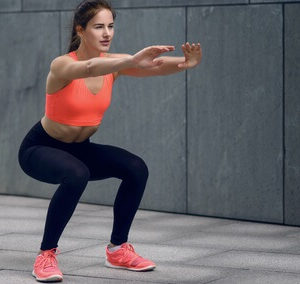ACE Behaviour Change Specialist
Ethics Course as Required By ACELearn to build supportive client-coach relationships to help people make healthy, productive and permanent life changes.
The ACE Behaviour Change Specialist Program will teach you the key tools to promoting behaviour change and creating a foundation for a healthy lifestyle. You will learn how to help clients of all backgrounds recognize counterproductive behaviours and coach them to discover new methods to move more, eat better and make healthier decisions for themselves and their families.
What’s in the curriculum?
This program will help you familiarize yourself with common obstacles to achieving healthy behavior change and teach you how to help clients find their own path to a more fulfilling lifestyle. You will learn strategies, such as motivational interviewing and setting SMART goals, to help clients increase energy, prevent disease and develop healthier habits.
Course Outline
Section 1: Coaching Fundamentals
In this section, you’ll learn the fundamentals of coaching, defined as the art of communication with individuals or groups to help them achieve a goal. Discover how to establish a client-coach relationship and coaching plan, increase competency in emotional intelligence, acquire skills in structuring a coaching program, and learn to approach coaching from a strengths-based perspective.
Coaching Behaviour Change
In the first section, you will explore the coaching fundamentals portion of Coaching Behaviour Change. The content, written by practicing physician and obesity medicine specialist Natalie Digate Muth, MD, MPH, RD, explores fundamentals of the client-coach relationship and how to create a coaching plan, increase competency in emotional intelligence, acquire skills in structuring a program, and learn to approach coaching from a strengths-based perspective through the use of positive psychology.
Scope of Practice Podcast
Our first in a series of interactive podcasts features ACE experts discussing scope of practice for coaches alongside Billie Frances, MA, Board-certified Life Coach, licensed therapist and founder of Guiding Mindful Change.
Insight from Experts Series
Experience video-based sessions with two leading experts in emotional intelligence and positive psychology, Dan Goleman, Ph.D., author of The New York Times best-sellers Emotional Intelligence and Focus; and Robert Biswas-Diener, Ph.D., positive psychology expert, author and managing director of Positive Acorn.
Roundtable Discussion
Experience an in-depth, video discussion between Dan Goleman, Ph.D., author of The New York Times best-sellers Emotional Intelligence and Focus, and ACE Certified Professionals on the subject of behaviour change. Topics include the concept of emotional intelligence and its four domains, and how to approach the client-coach relationship with competency in each area.
Section 2: Awareness Raising
In this section, you’ll discover the predictable, though nonlinear, cycle of change that clients and patients experience. Coaching through all of the stages — beginning with awareness — demands the utilization of strategies and communication techniques that help people better understand and explore present states and future visions. You’ll also learn how to help identify a current stage of change, employ techniques to help continue progress, and help clients and patients recognize whether and how a change should occur.
Coaching Behaviour Change
In this section, you’ll explore the first stage in the ACE cycle of change, a model of behavior change in which a client or patient experiences a nonlinear cycle of raised Awareness, Choice and Execution. You’ll learn more about identifying the stages of change in your clients and patients, and techniques you can utilize to help them progress. You’ll also explore how to identify potential ambivalence to change and how to help others become more fully aware of what their lives will be like once they adopt lifestyle change.
Stages of Change Podcast
To continue the podcast series, ACE experts discuss stages of change with James O. Prochaska, professor of psychology, director of the Cancer Prevention Research Center at the University of Rhode Island, and developer of the Transtheoretical Model of Behaviour Change.
Insight from Experts Series
Our video-based series continues with insight from William R. Miller, Ph.D., founder of motivational interviewing. Enhance your understanding of the concept of motivational interviewing, and how and when to use open-ended questions, affirmation, reflective listening and summarizing when communicating.
Roundtable Discussion
Experience an in-depth, video discussion between William R. Miller, Ph.D., founder of motivational interviewing, and ACE Certified Professionals on the subject of behavior change. Learn more about when to use motivational interviewing with your clients, and how to put the technique into practice.
Practical Application
In this practical application, Billie Frances, MA, Board-certified Life Coach, licensed therapist and founder of Guiding Mindful Change, will help you to improve your own mindfulness through integration of meditation. As a coach, engaging in these types of practices can help you maintain a nonjudgmental approach to clients or patients, and be more aware of their emotions, thoughts and sensations.
Section 3: Choice
Section 3 utilizes a number of learning opportunities aimed at helping you explore the choice stage of change, which occurs after an individual has come to recognize that a behavioural change is warranted. Coaching clients through this phase requires strategies and communication techniques that help them set goals, plan for challenges, and establish a positive mindset. You’ll learn about cognitive behavioural coaching, identifying strengths and barriers, and how you can guide all types of clients to establish attainable goals.
Coaching Behaviour ChangeIn this section, you’ll explore the stage of choice in Coaching Behaviour Change, content written by Billie Frances, MA, Board-certified Life Coach, licensed therapist and founder of Guiding Mindful Change; practicing physician Natalie Digate Muth, MD, MPH, RD; and other ACE experts. The coach’s role in this stage is to help clients set the best goals to fuel and inspire change, recognize and rely on their own strengths, and maintain a positive tone as they prepare to embark on the journey to long-lasting behavioural change.
Cognitive Coaching Podcast
To continue the podcast series, ACE experts describe the concept of “the link is what you think” and its role in behaviour change. The insight offers a straightforward method to understand the science and relationship between thought processes and behaviour.
Roundtable Discussion
Learn more by experiencing an informative, video discussion between Robert Biswas-Diener, positive psychology expert, author and managing director of Positive Acorn, and an ACE Certified Professional. The discussion offers insight on how to apply the principles of positive psychology and strengths-based coaching to your sessions.
Practical Application
Our series of practical applications continue with an exercise led by Robert Biswas-Diener, positive psychology expert, author and managing director of Positive Acorn. Gain deeper insight by exploring the video, “What is Health?”
Section 4: Execution
Our learning experience continues with a section focused on helping you lead clients and patients through the execution stage of change, which occurs when they are ready to act. You’ll learn how to develop strong plans through brainstorming, effective accountability techniques and how to respectfully and appropriately respond to reluctance. You’ll also explore how to use adult learning techniques to fill knowledge gaps and how to evaluate plans.
Coaching Behaviour Change
In this section, you’ll explore the coach’s role throughout the execution stage of change, which occurs when clients are ready to begin the challenging, yet rewarding task of making the changes necessary to achieve their goals. In Coaching Behaviour Change, you’ll explore more about how to prepare for action, and offer accountability, adult learning and evaluation, a valuable tool in ensuring your clients’ actual behaviours are sustainable and match up to their desired behaviours.
Insight from Experts Series
Our video-based series continues with leading behaviour scientist and founder of the Tiny Habits® program, B.J. Fogg, Ph.D., and professional coach Linda Fogg-Phillips. The two offer insight into how science and emotions affect the process of developing new habits, breaking bad habits, and coaching for successful behavioural change.
Roundtable Discussion
Experience an in-depth, video discussion between B.J. Fogg, Ph.D., and ACE Certified Professionals on the subject of behavior change. The discussion offers insight on the Tiny Habits program and how you can utilize it when leading all types of clients and patients to sustainable change.
Section 5: Behaviour Change Strategies In Diverse Settings
Coaches work with clients in diverse settings, from workplaces to clinics, wellness or medical fitness centers to virtual forums like Facebook or Google+. They also come from diverse backgrounds, often incorporating their expertise into another professional role such as physician, nurse, dietitian, medical assistant, personal trainer or community health leader. In this section, you’ll prepare to successfully apply the fundamental coaching principles to any number of diverse settings.
Coaching Behaviour Change
In the final chapters of Coaching Behaviour Change, you’ll gain insight on how coaches fit into the patient-centered medical home, emerging workplace wellness programs and medical fitness centers, and payment models that can be incorporated into each of those settings. You’ll also explore the emerging trends of virtual coaching and group coaching.
Case Study Podcast
To round out the podcast series, Linda Fogg-Phillips, MS, an expert in health behaviour design, health coaching and the Tiny Habits®, shares a real-life virtual coaching example. You’ll also review the CRAFT Model, used exclusively in virtual coaching. The method will help you systematically address specific areas with your client or patient at each meeting.
Section 6: Coaching Workshop
Our landmark Coaching Workshop series of videos offers live 15-20 minute coaching scenarios demonstrating client-centered coaching principles based on the International Coach Federation core competencies. Featuring ACE experts Natalie Digate Muth, MD, MPH, RD, and Billie Frances, MA, Board-certified Life Coach, licensed therapist and founder of Guiding Mindful Change, and several Behaviour Change Specialists-in-training, the videos take an inside look into clients who want to quit smoking, reverse prediabetes, establish a workplace wellness program, lose weight and maintain a healthy diet.
Section 7: Final Assessment
The Final Assessment will assess your knowledge of behaviour change coaching. Each question will test your ability to select the most appropriate response to specific practical scenarios. You will be asked to evaluate spoken responses, written responses and visual cues.The Final Assessment consists of 25 multiple choice questions. You will need to receive a score of 70% or higher to pass. You can take the test as many times as needed.
Details
Prerequisites
- ACE encourages anyone who’s interested to pursue our specialist programs, as we believe that health and fitness professionals with a broad education can better serve special populations in our communities. In order to be eligible for an official designation as an ACE Specialist, however, you must meet one of the following criteria:
- Hold a current professional certification in health education, fitness, wellness, or allied health that is accredited by the National Commission for Certifying Agencies (NCCA) or the International Organization for Standardization (ISO 17024)
- Hold a current license as a healthcare professional
Student Information
ACSM: 25
NASM: 1.9
Payment Plan Option(s)
Additional Information
Financial Assistance
Related products
-
First Aid and CPR
$99.75 Select options




